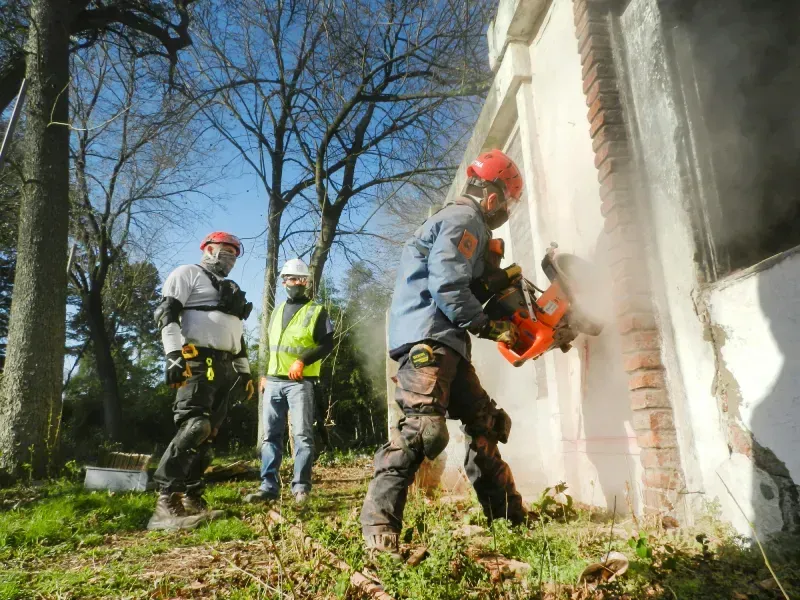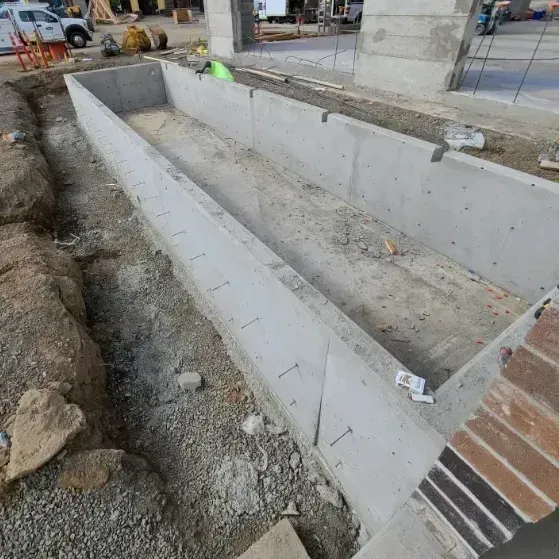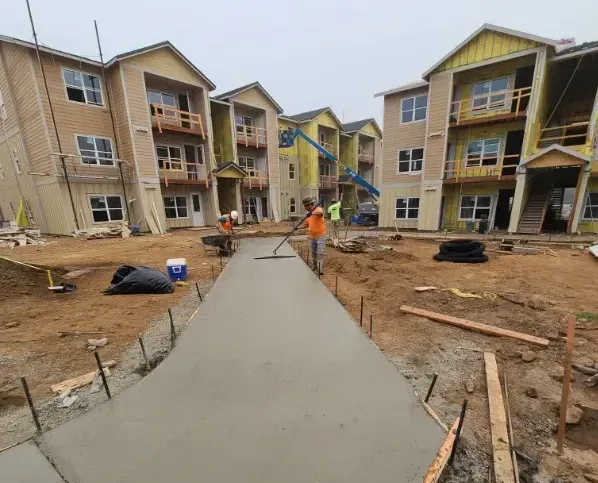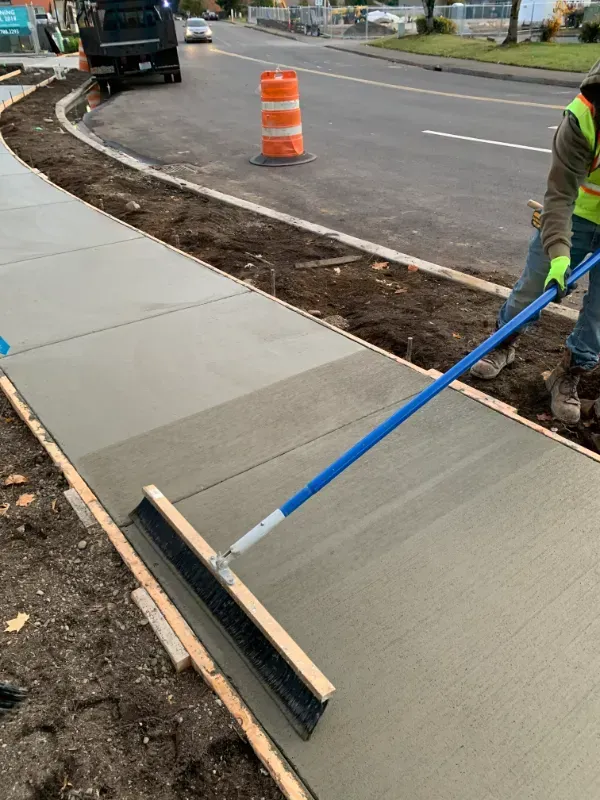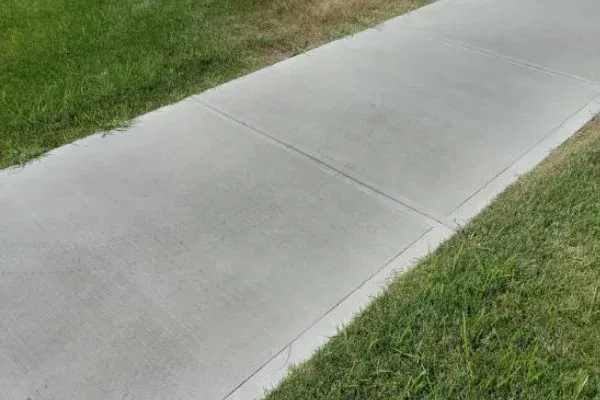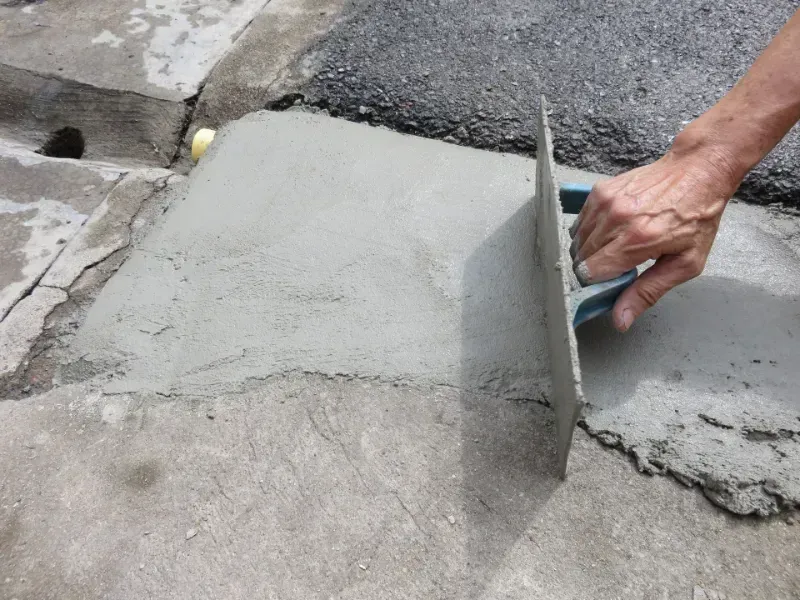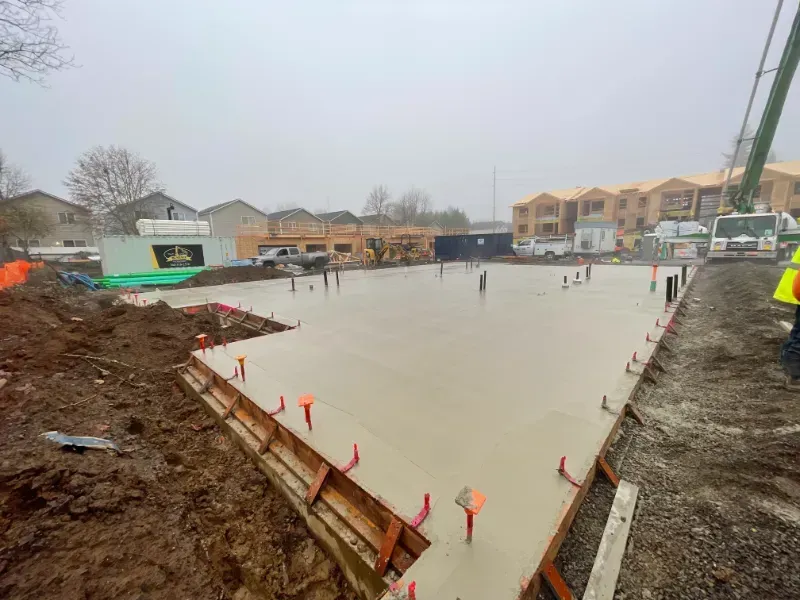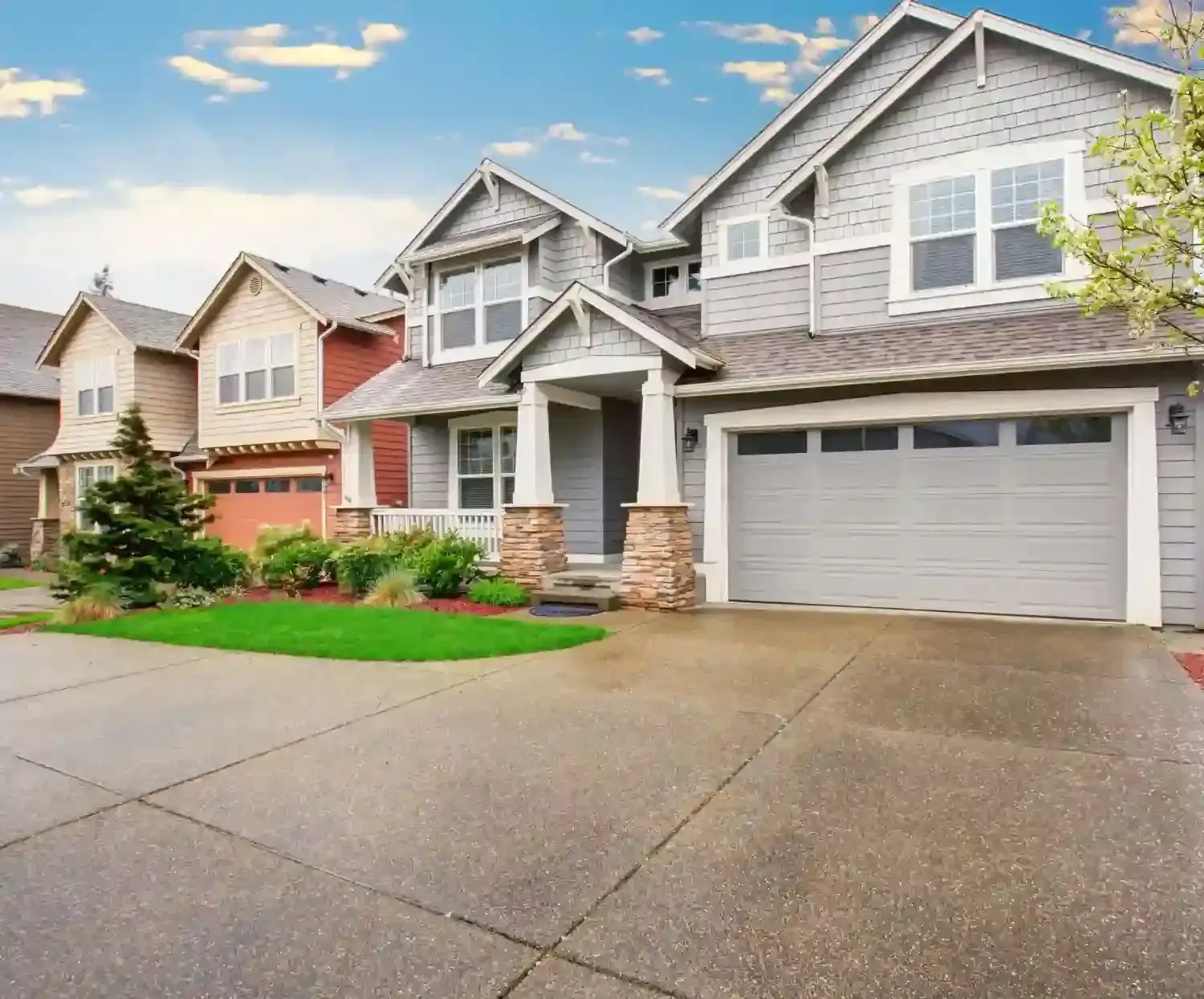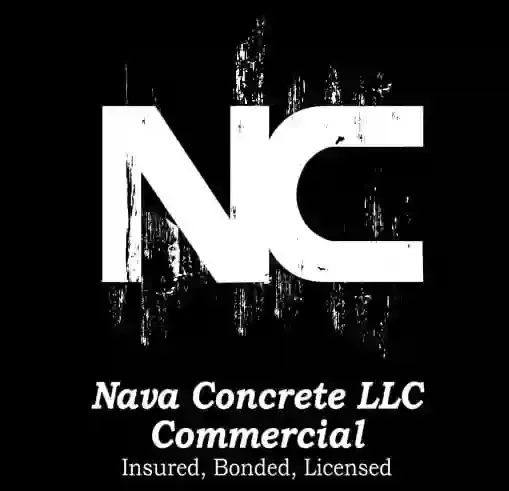Best Ways to Remove Stubborn Concrete Stains Effectively
Common Types of Stains on Concrete Surfaces
Concrete is durable, but even the toughest surfaces are vulnerable to wear and concrete stains over time. From oil and rust to mildew and red wine, stains vary in severity. Some affect only appearance, while others can degrade the surface if ignored. Identifying the type of stain is key to choosing the right solution.
We commonly see damage from grease, fertilizer runoff, paint, and organic buildup. Each type requires a specific cleaning method to avoid making things worse. With the right approach, most stains can be significantly reduced or removed without compromising the integrity of your concrete.
Why Concrete Stains Are Tough but Not Impossible
Concrete might look solid, but it’s porous. It absorbs liquids easily, which is why concrete stains can be difficult to remove once they set in. Letting them sit too long can make things worse, but that doesn't mean the surface is ruined. You just need the right tools and a method that fits the type of stain.
Most stains can be removed or significantly reduced with a targeted approach. From fresh spills to older marks, using the right products and a bit of effort often restores the look of your concrete without causing damage.
Tools and Materials You’ll Need for Concrete Cleaning
Before tackling concrete stains, it’s important to have the right tools on hand. Each item plays a role in making the cleanup more effective and less frustrating, especially when dealing with stubborn marks.
- Stiff-bristle brush: Essential for scrubbing without damaging the surface.
- Bucket: Used to mix and apply cleaning solutions.
- Water hose: For rinsing off residue and loosening dirt.
- Concrete cleaner: Designed to target common stains without harming the material.
- Degreaser: Effective on oil, grease, and automotive spills.
- Pressure washer: Speeds up cleaning on large areas like driveways or patios.
- Rubber gloves: Protect your skin from chemicals and grime.
- Eye protection: Prevents eye exposure to dust and splashes.
- Face mask: Useful when working with strong fumes or fine particles.
Proper preparation makes concrete cleaning straightforward and satisfying.
The Best Ways to Clean Oil Stains from Your Concrete Driveway
Oil stains are one of the toughest concrete stains to remove. Whether it comes from a slow leak or a full spill, oil sinks into the surface quickly. We recommend starting with an absorbent material like sawdust or kitty litter to soak up what you can. As a final step, apply a degreaser and use hot water.
Older stains may take a few rounds of cleaning. Skip harsh acid-based cleaners at first, since they can damage the concrete. A targeted oil remover and a stiff brush usually give better results with less risk.
Best Way to Clean Rust Stains off Concrete
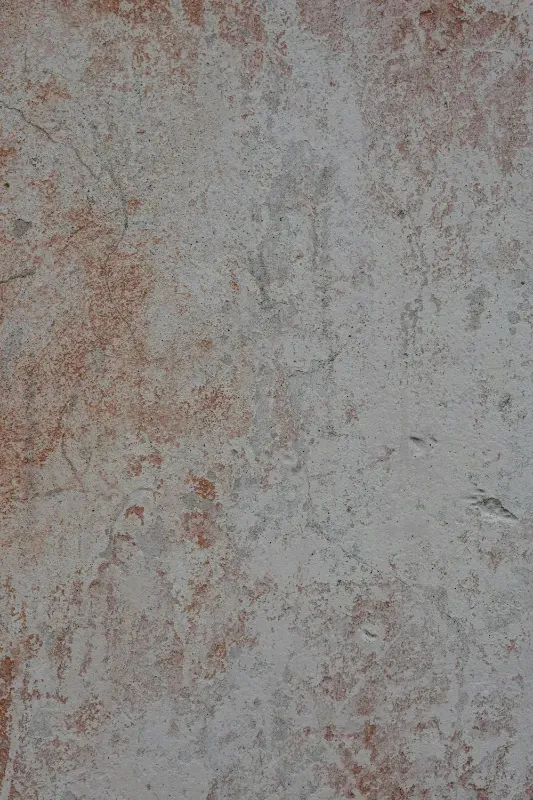
Rust stains often come from patio furniture, garden tools, or water running off metal fixtures. These marks can set in quickly, but with the right product, they’re usually manageable. We use rust removers made specifically for concrete to lift the stain without harming the surface.
For mild cases, lemon juice or vinegar can work as a gentler option. Allow it to sit for a few minutes, scrub with a hard-bristled brush, and rinse thoroughly. It is important to remove all residue since acidic cleaners left behind can create new discoloration.
Lifting Paint Spills and Overspray from Concrete
Paint stains can happen easily, whether from a spill, overspray, or a dropped brush. If it's latex-based and still wet, a mix of warm water and mild soap often does the job with some scrubbing. Once dry, though, it gets tougher and may require a concrete-safe paint stripper.
We usually start with a plastic scraper to lift what we can without damaging the surface. From there, we apply a targeted remover and work in stages. A steady, careful approach is the best way to clean without leaving marks behind.
Removing Mold and Mildew from Outdoor Concrete
Mold and mildew often develop in moist, shaded sections of concrete, particularly on patios and pathways. These stains not only look bad but can also make the surface slick and unsafe. A basic bleach and water mix, about one part bleach to ten parts water, is often effective. Give it a good scrub, rinse off completely, and repeat the process if needed.
If you prefer a gentler method, vinegar or hydrogen peroxide can work too, though it may take more time. Once clean, applying a concrete sealer helps prevent future growth and makes maintenance easier.
Natural DIY Solutions for Eco-Friendly Concrete Cleaning
Not every concrete stain calls for heavy-duty cleaners. For lighter marks, we often turn to simple household items like baking soda, vinegar, lemon juice, or cornstarch. These can help lift stains without the side effects of harsher chemicals.
Combine them with warm water, apply to the area, and let them sit before scrubbing. While they may not erase every stain, they are effective on grease, food spills, and everyday grime. It is a practical starting point that’s both low-impact and budget-friendly.
The Right Time for a Pressure Washer: When to Use It and When to Skip It
Pressure washers can refresh concrete quickly, especially when dealing with large surface stains or general buildup. They work well for brightening driveways, patios, and walkways, but using them incorrectly can do more harm than good.
Our team of concrete experts recommends starting with a small test area at Nava Concrete LLC. High pressure or a nozzle held too close can wear down the surface or cause uneven streaks. Skip painted or sealed areas unless you are prepared to reapply the finish. Used properly, pressure washing is a reliable tool for keeping your concrete in good shape.
Keeping Concrete Surfaces Clean with Preventive Care
After removing concrete stains, the next step is prevention. Regular cleaning and resealing every few years help protect the surface from future damage. At Nava Concrete LLC, we remind Vancouver homeowners that maintaining concrete is no different from caring for any other part of the property. Clean, sealed concrete looks better and holds up longer.
Most stains can be avoided with a few small habits, like using mats under grills or trays under planters. If you need support or have questions, give Nava Concrete LLC a call at
(360) 721-8093. We’re here to help get rid and prevent those pesky concrete stains.
